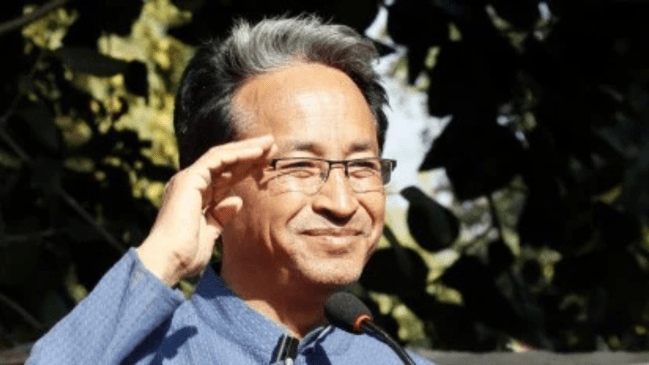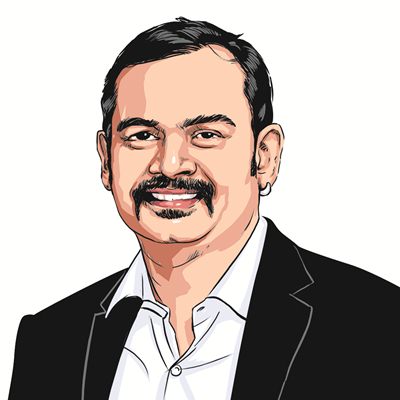Talks on Ladakh hit a wall as Leh body pulls out, Kargil to follow
Apex Body, Leh, demands impartial probe into killings of four, release of those jailed; Centre says it is open for dialogue “at any time”.
 Apex Body, Leh has cancelled talks with the Centre over the arrest of Sonam Wangchuk.
Apex Body, Leh has cancelled talks with the Centre over the arrest of Sonam Wangchuk. The Apex Body, Leh (ABL), which was supposed to hold informal talks with the Centre on Tuesday followed by structured discussions on October 6, has pulled out of both, citing the current situation in Ladakh and a “negative” campaign against its agitation seeking Sixth Schedule status and statehood for the region.
Asked about the ABL stand, Kargil Democratic Alliance (KDA) member Sajjad Kargili told The Indian Express that their position “is the same”. The KDA is leading the agitation for Sixth Schedule and statehood on the Kargil side.
Soon after the ABL’s announcement, the Centre said it was open to talks with the ABL and KDA through the High Powered Committee on Ladakh or any such platform “at any time” and hoped for a desired result “in the near future”.
The dialogue mechanism through the committee, it said, had yielded good results in the form of increased reservations for the Scheduled Tribes of Ladakh, providing women’s reservation in Ladakh Autonomous Hill Development Council (LAHDC) and protection to local languages. Addressing the issue of jobs, seen as the prime reason for the protesters’ anger, the Centre said: “The process of recruitment for 1,800 posts in the government has already commenced.”
At its press conference, the ABL said that until there is an impartial inquiry into the killing of four youths during the violent September 24 protests, and all the youngsters jailed for the protests are released, there would be no talks with the Centre. Around 50 people have been rounded up since September 24 over the violence, with climate activist Sonam Wangchuk arrested under the stringent National Security Act.
“We were supposed to leave for Delhi today for (informal) talks… But, we have unanimously decided that given the current atmosphere in Ladakh, till the time peace and normalcy is restored, we will not engage with the Centre in any talks,” ABL chairman Thupstan Chhewang said.
He added that they expected the Centre and the UT administration to “take steps to address the atmosphere of fear and sadness that has been created in Ladakh and address our demands (related to the current situation)” in this period.
ABL co-chair and Ladakh Buddhist Association (LBA) president Chhering Dorje Lakruk said, “We want an impartial judicial inquiry under a Supreme Court judge into the excesses unleashed on our children, who were shot in the head and chest. So many of our children, who were merely bystanders, have been beaten up and put in jails. These are students, not criminals. The vice-president of our LBA, its youth (wing) president, our women (wing) president, our joint secretary, have all been booked under baseless charges. All these cases must be withdrawn and those in jail should be released.”
Lakruk said the government should also address the “negative campaign” against their agitation for Sixth Schedule status and statehood. “We are being given the tag of being anti-national and being in conspiracy with Pakistan by the government and the ‘godi media’. We will not go in for talks till this is cleared… Ladakhis will never tolerate this allegation, as a reward for all the loyalty they have shown towards the nation,” he said.
Lakruk referred to the press conference held by Lieutenant Governor Kavinder Gupta after the violence, “making serious allegations against us… that we are acting on directives of foreign powers”. “Then the DGP did a press conference and said he suspected the hand of Pakistan in all this. He said Sonam Wangchuk was involved in anti-national activities. We will not tolerate such insinuations on Ladakh… If the youth hit the streets, the government will be responsible.”
He added that Ladakhis were also hurt that those who died in police firing were cremated under tight security, with the public and media not allowed. “This was a very wrong step by the administration,” Lakruk said.
Two of the four deceased in the protests, former Ladakh Scouts personnel Tsewang Tharchin, 46, and Rinchen Dadul, 20, were cremated Monday amid tight security in Leh. While only close relatives, friends and neighbours were officially allowed to attend, around 400 people reportedly joined Tharchin’s cremation. The other two deceased, Stanzin Namgyal and Jigmet Dorjay, were cremated on Sunday.
On the demand for inclusion under the Sixth Schedule, Chhewang said: “When we got UT status, we were expecting that the issues for which we had been agitating for 70 years would be resolved. But we found that this was a UT without a Legislature (the Jammu and Kashmir UT, on the other hand, has a Legislature). We realised that not only had we lost the protection that was available to us under Articles 370 and 35A, but also a democratic administration. So once again we had to struggle for our rights.”
Chhewang said the ABL initially got some assurances from the government and talks were held for six years. “We continued our peaceful struggle. What happened on September 24 was beyond our understanding also. The way the administration used excessive force on protesters… and the kind of atmosphere of hooliganism that was created by the CRPF, we have not seen in the history of Ladakh,” he said, adding that the government crackdown happened despite the fact that the October 6 talks were on schedule at the time.






